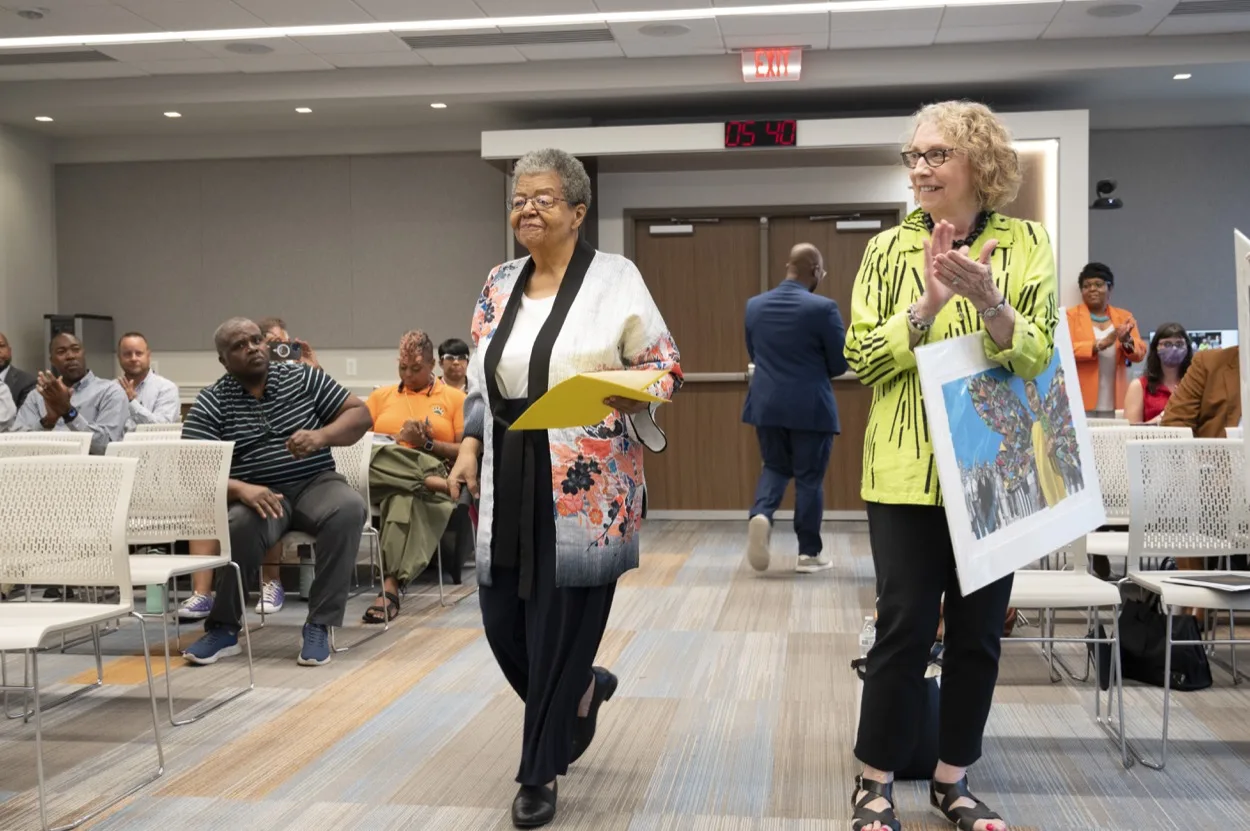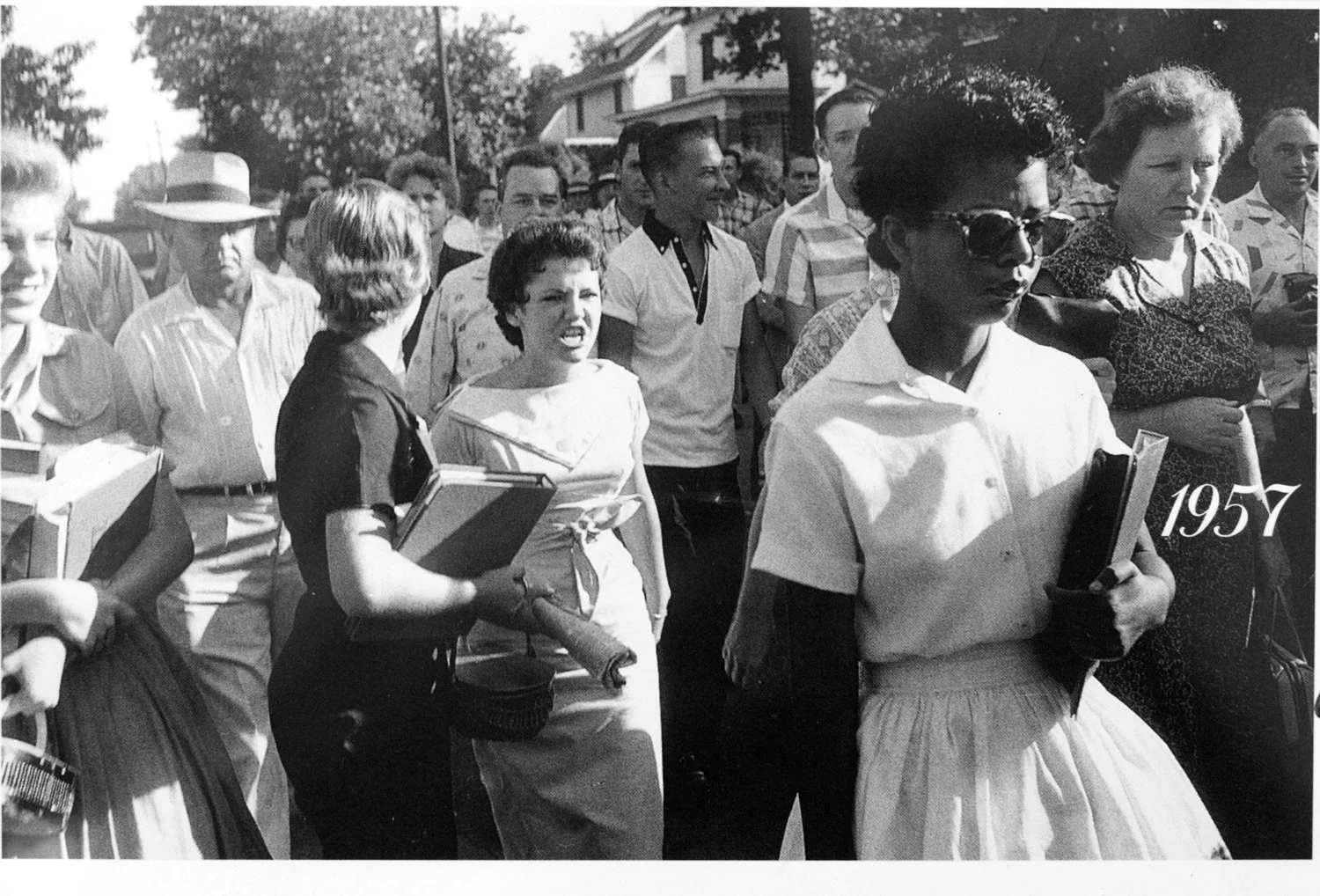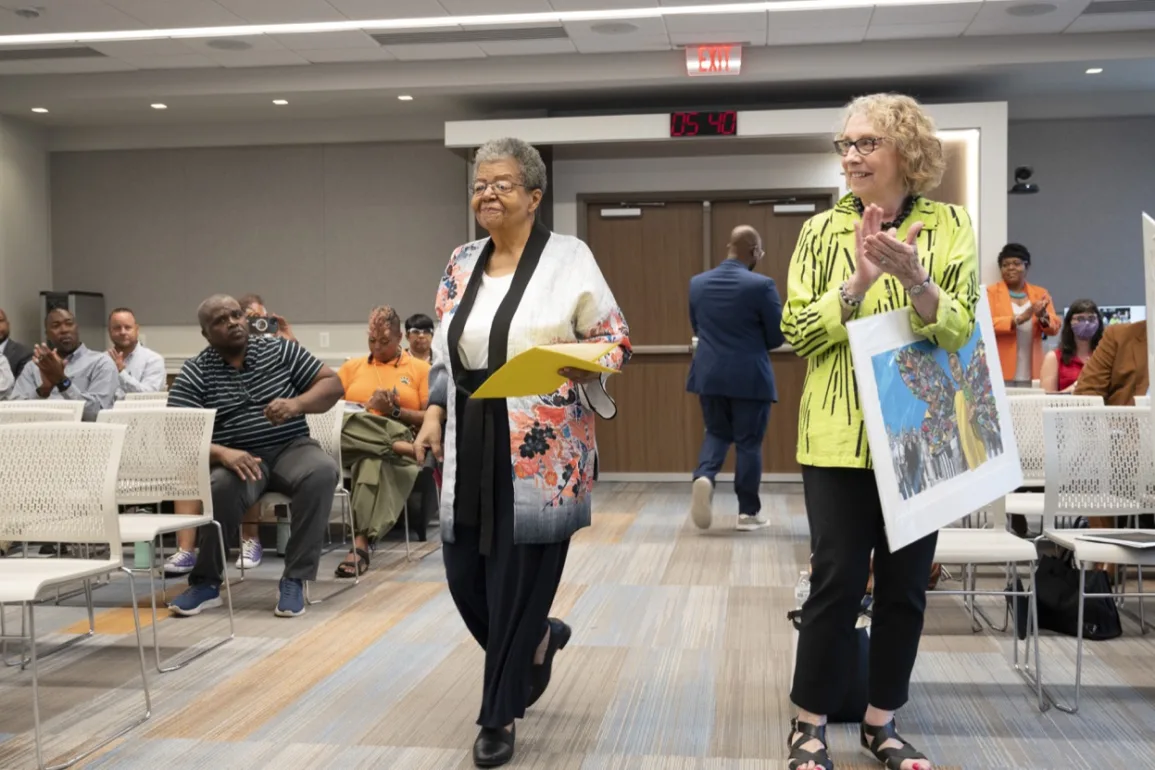Reluctantly famous as one of the Black students who integrated Central High in 1957, Elizabeth Eckford could be forgiven for sitting out the latest battle for racial equality in Arkansas.
On Thursday, though, Eckford took the podium at a school board meeting to thank the Little Rock School District for keeping classroom doors open for the embattled AP African American Studies class.
Advertisement
 Brian Chilson
Brian Chilson“African American history reveals the lived experiences of our people. I applaud efforts to teach the facts and consequences of American history,” Eckford said.
Teaching history doesn’t create rifts, but mends them, she said. “Historical truth deconstructs damaging myths of marginalized people omitted from popular history.”
Advertisement
 Will Counts Collection/Indiana University
Will Counts Collection/Indiana UniversityEckford and other members of the Little Rock Nine, those Black students who suffered to integrate the previously all-white Central High in 1957, find themselves in the limelight again. Now in their 80s, some members of the group have given interviews and written statements criticizing Arkansas politicians for launching a culture war attack on the new Advanced Placement class.
The state education department pulled AP African American Studies from a database of approved course on Aug. 11, the Friday before school started for most public school students in the state. On the first day of school, the ADE put out a statement explaining the decision: “The department encourages the teaching of all American history and supports rigorous courses not based on opinions or indoctrination.”
Advertisement
Gov. Sarah Huckabee Sanders and Arkansas Education Secretary Jacob Oliva cited both Sanders’ executive order against indoctrination in public schools and a section of the new Arkansas LEARNS Act to justify singling out a class on African American history and culture.
Since then, state Sen. Clarke Tucker (D-Little Rock) helped lead efforts to keep the class.
At Thursday’s meeting, a beaming Tucker called Eckford “the most special guest we can ever have in this room.”
 Brian Chilson
Brian ChilsonAnd he talked about a new scholarship honoring history teacher Ruthie Walls. Walls taught AP African American Studies at Central High last year and expanded the program to nearly 200 students this year.
Advertisement
When the Arkansas Department of Education launched a last-minute maneuver to pull the class based on accusations of “indoctrination,” Walls stayed the course. Educators in the Little Rock School District, along with those at the five other Arkansas schools offering AP African American Studies this year, dodged politics to focus on finding ways to preserve the class.
“I’m always proud to be from Little Rock, but there are some times when I’m extra proud to be a product of the Little Rock School District and a graduate of Little Rock Central High. These last two weeks have been one of those times,” Tucker said.
Tucker thanked board members for agreeing to use local funds to cover the $90+ cost of AP exams for African American Studies students. The state education department covers all other AP exam fees, but has said it will not pay for this one.
Even so, Tucker said, people in Arkansas and across the country continue to want to donate money.
“So instead, to honor a modern-day heroine who’s teaching this class, we created the Ruthie Walls AP African American Studies Scholarship.”
Donations have been robust, Tucker reported. “We are very close to having that as an endowed scholarship, which means that it will last forever.” Every year, the fund will grant a scholarship to a Central High student who excels in the course.
School board member Ali Noland has appeared on national television in recent weeks to criticize the singling out of a class on Black history and culture in the United States. At Thursday’s board meeting she asked Walls, Little Rock Superintendent Jermall Wright and Central High Principal Nancy Rousseau to stand.

From left, Central High Principal Nancy Rousseau, Central history teacher Ruthie Walls and LRSD Superintendent Jermall Wright are honored for keeping the embattled African American history class available to students.
“Your board and your community would like to take a moment to recognize and thank you,” Noland said. “Our governor has said that to teach this course would be to teach students to ‘hate America and hate each other.’ We honor the three of you for having the vision to stand firm. We know, as you know, that erasing our history will not solve our problems. But grappling with that history and helping our students learn that history will help us form stronger bonds and more authentic connections with each other.”
Board members passed a resolution pledging continued support for the class.
Working to keep the class going was “a no-brainer,” Wright said.
But there’s more work ahead. On Monday, Oliva sent letters saying AP African American Studies teachers must submit lesson plans and course materials for inspection by Sept. 8.
“Given some of the themes included in the pilot, including “intersections of identity” and “resistance and resilience,” the Department is concerned the pilot may not comply with Arkansas law, which does not permit teaching that would indoctrinate students with ideologies, such as Critical Race Theory (CRT), (See Ark. Code Ann. § 6-16-156, as amended by Section 16 of the LEARNS Act),” the letter says.
You can read the full letter here.



